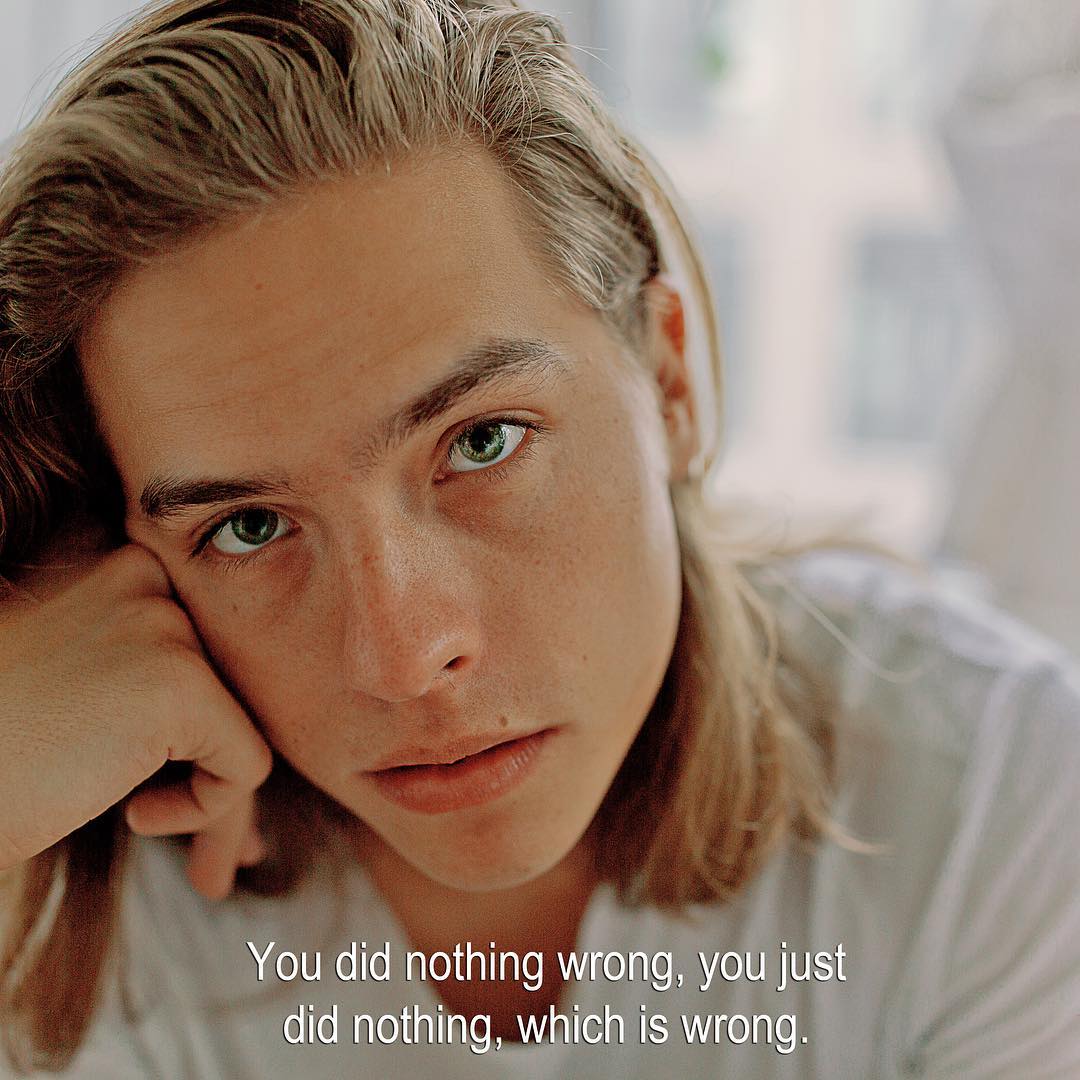You know those oversaturated images you scroll past — maybe regram, maybe save, but certainly relate to — of women, the ones that look like they’re from a film you can’t place or a meme you missed out one? They’re actually small pieces of art by Sarah Bahbah.
The Palestinian artist, who was raised in Australia but is currently living in Los Angeles, had first breakthrough with the series Sex and Takeout, back in 2014. She since become a viral sensation, famed for her luxe, cinematic photography that lends itself so well to Insta. “I was essentially creating memes in advertising format”, she says. “While my intention wasn’t to make art for Instagram, the social media creative director in me subconsciously finds her way in, every time.”
The relatable, screenshot-friendly dialogue isn’t plucked out of mid-air. Sarah likens the process of creating them to that of a real movie or play. “I’m a writer first, visual artist second”, she tells i-D, citing her cinematic influences as No Country for Old Men and The Big Lebowski. “The dialogue is written over a period of months, usually after I have internalised intense conversations I’ve had with once significant connections, or conversations I never had with them but wish I did. I’ll replay those conversations in my mind, and it’s the finding of unspoken dialogue in those actual conversations that becomes part of my art.”
While many artists are wary of the way Instagram and social media is changing the art world, Sarah positions herself slap bang in the middle of it. Even when it works against her. “Imagine trying to persuade your typical art dealer, who trades the likes of Basquiat, Hockey, Warhol and Opie, to invest in an artist who conceptualises her work such that it should be accessed and shared by everyone”, she says of exclusivity in the art world. “It’s doable, but it’s like rewiring an entire house to have Alexa instead of power switches.”
Modern it may be, but sharing your work primarily on Instagram also comes with disadvantages — the artist’s own bio reads “you’ve probably seen my art on someone else’s account”, and plagiarism remains a huge problem for artists on Insta. “It’s been exhausting to watch my own works, and the works of fellow artists, go viral without credit, or get used in advertisements for hundreds of brands internationally, for several years now.”
Instagram is certainly making steps towards changing the plagiarism culture on the app: it’s Terms of Use and Community Guidelines states that users can only post content on Insta if it doesn’t violate the intellectual property rights of another party, and that you can only post content someone else owns with permission or other exception to copyright. In other, non legal jargon words, hitting the RG without a tag isn’t gonna cut it these days.
If Sarah’s art is works perfectly for social media, it represents a world that’s like a more polished, more curated, more dramatic version of our own, admittedly mundane feeds. Her series so far, including Sex and Takeout, This Is Not For You and I Love You, Me Neither, are the perfect midpoint between relatability and aspiration, emotional vulnerability and strength (think you with pizza after a break-up, but a silk pyjama wearing, sundrenched, beautifully sad version of yourself).
“My first priority is being true to my emotions”, says Sarah. “Because in doing so it empowers others to do the same. My art is my way of expressing the emotions I suppress on a daily basis. When I can express myself, I am healing.”
But having your entire body of work available on an easy to scroll through loop comes with its own set of problems as well as advantages. It’s impossible to ignore, for instance, while scrolling through Sarah’s feed, that the overwhelming majority of her models are less than diverse. She’s spoken before of her tendency to choose to shoot with frankly, a sea of white, thin, beautiful women (and the occasional beautiful white man). This is something she links to her own upbringing, growing up in a Middle Eastern family in Australia, but something she wants to change.
“Personally, my art is a reflection of my growth”, she explains. “For my entire life I experienced a social resistance to be identified as a brown girl, as a Palestinian, due to a repressed trauma. I subconsciously resisted my true identity as it attached to me pain and suffering. It wasn’t until late 2016 that I dedicated my all into uncovering suppressed memories, reliving this trauma before moving through acceptance and healing – healing that I’m still actively undergoing.”
Her experiences in trauma and healing, Sarah says, will make up a significant part of her new work. “These stories are yet to come, and when they do, WOC, in particular Middle Eastern women, will represent them.”
“I still have stories to tell. And they will come when I’m ready, and I hope that the same empowerment and vulnerability is evoked.”
